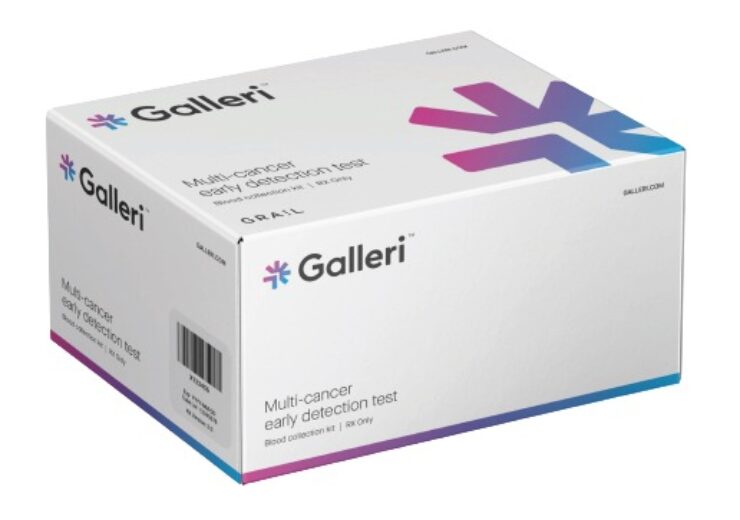The initial results of Galleri are like previous large-scale clinical studies, including the accuracy of the CSO prediction and cancer signal detection rate to guide diagnostic workup

A product image of GRAIL’s Galleri MCED test. (Credit: GRAIL)
GRAIL has published positive results for its Galleri multi-cancer early detection (MCED) test’s ability in the detection of a cancer signal and in predicting the cancer signal origin (CSO) in asymptomatic individuals in real-world analysis.
Galleri is said to be the first-of-its-kind MCED test to detect a shared cancer signal across more than 50 types of cancer with a routine blood draw. Its next-generation sequencing and machine-learning algorithms isolate cell-free DNA and study methylation patterns for detecting cancer signals.
GRAIL said that the initial results of Galleri are like previously held large-scale clinical studies, including the accuracy of the CSO prediction and cancer signal detection (CSD) rate to guide diagnostic workup.
According to the US-based healthcare company, which is owned by Illumina, the CSO predictions were related to invasive cancer diagnosis across various cancer types, including of stage 1 and 2 cancers.
The CSD rate for Galleri was 0.95%, which was equivalent to the cancer incidence from the Surveillance, Epidemiology, and End Results (SEER) programme and the modelled MCED test performance rates, the healthcare company claimed.
In the real-world setting, the CSO prediction accuracy was found at 91%, which was better than the PATHFINDER study average of 84% and on par with the Circulating Cell-Free Genome Atlas study’s clinical validation score of 89%.
The top CSO predictions were also in line with the results of the PATHFINDER study.
GRAIL chief medical officer Jeffrey Venstrom said: “Results of this analysis underscore our commitment to the rigorous study and validation of our multi-cancer early detection technology in both clinical studies and clinical surveillance.
“We are encouraged by these data demonstrating that Galleri performance in the real world supports what we have observed in our previous large-scale clinical studies.”
Additionally, the company announced that the new PATHFINDER study analysis has shown efficient diagnostic resolution using the Galleri MCED test.
According to the results, the test’s CSO-directed initial diagnostic evaluation led to a diagnostic resolution in 78% of study participants.
In a separate development, GRAIL announced that its telemedicine vendor, PWNHealth, incorrectly sent letters to around 400 patients suggesting they may have developed cancer.
The healthcare company later clarified that the incident happened due to a software glitch and it is not related to or caused by a wrong result from the Galleri test.
